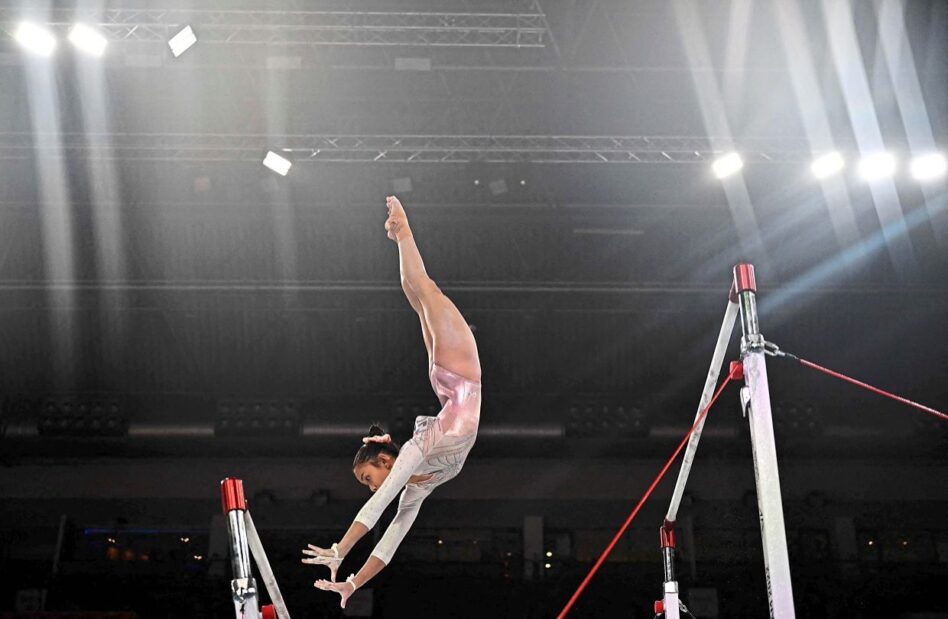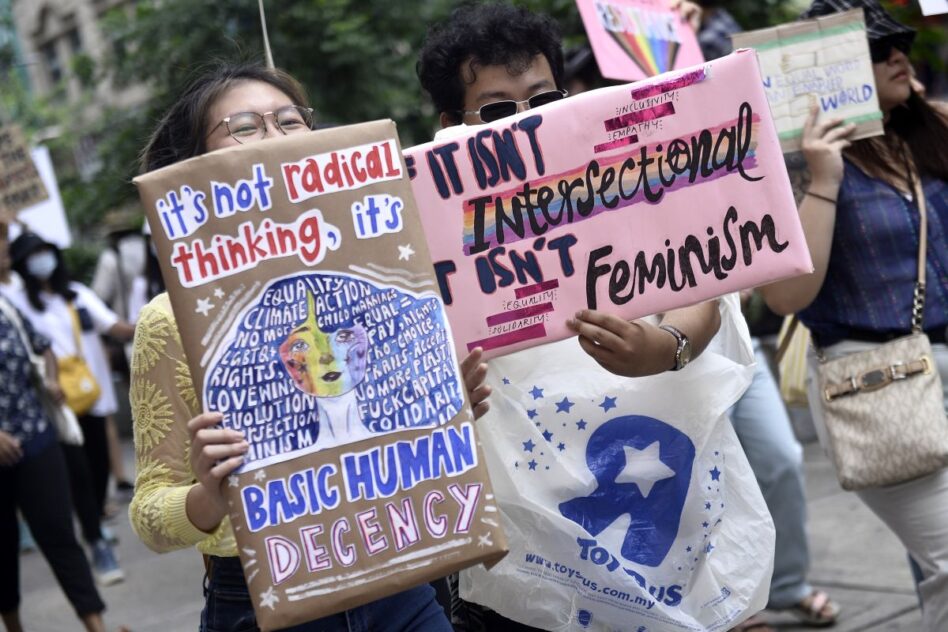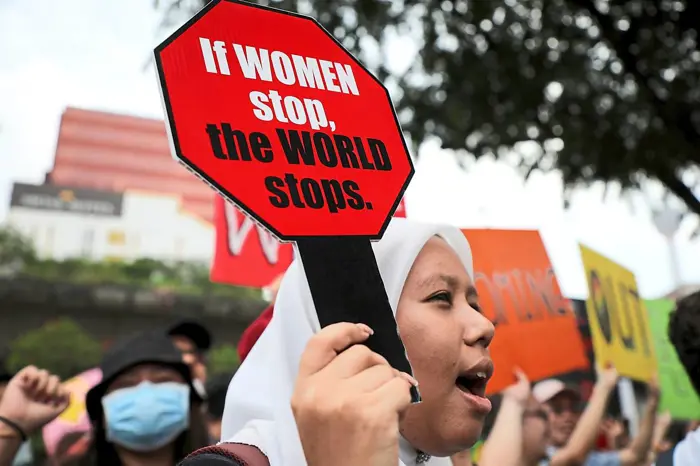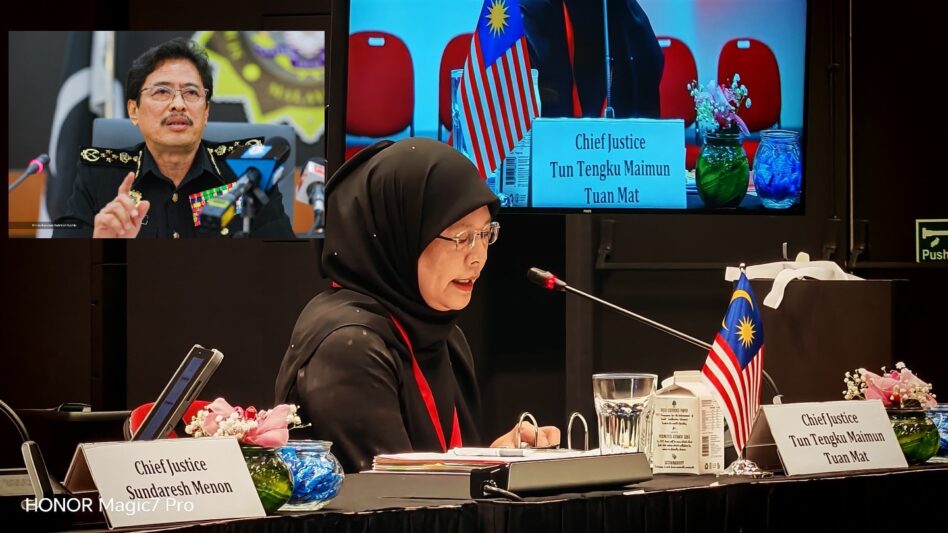EVERY year, International Women’s Day rolls around with its usual mix of celebratory hashtags and corporate platitudes.
And while Malaysia has seen its share of breakthroughs—like the historic appointment of Tun Tengku Maimun Tuan Mat as the nation’s first female Chief Justice—the reality for most women remains a gruelling fight for basic rights.
Deep-rooted gender inequality and institutional biases still cast a long shadow over any progress made. The glass ceiling may have cracks, but it’s far from shattered.
Mirage of progress
Yes, Malaysian women outnumber men in universities—a promising statistic that looks great on paper. But the pipeline from academia to leadership is clogged with systemic discrimination.
The numbers tell the story: female representation in Parliament has dropped to 13.57% in 2022 from 14.43% in 2018—a far cry from the global average of 25.5%. The much-touted 30% quota for female political representation remains an elusive goal, more slogan than strategy.
It doesn’t end there. A 2019 survey titled “Perceptions and Realities: The Public and Personal Rights of Muslim Women in Malaysia” by Sisters in Islam (SIS) found that 74% of respondents believe women face institutionalised discrimination, while 63% pointed to religious authorities disproportionately policing women’s behaviour.
Men’s infractions, of course, go largely unchecked. It’s a two-tier system that shields patriarchy behind a facade of piety.
Domestic violence

If you think domestic violence is a “private issue”, think again. Reported cases soared from 5,260 in 2020 to 7,468 in 2021. They dipped slightly in 2022 and 2023 but spiked again in 2024 to 7,116.
And these are just the cases we know about. For every woman who reports abuse, countless others remain silent—trapped by fear, stigma, and a justice system that often sides with the abuser.
Police are reluctant to intervene, shelters are underfunded, and the legal process is a nightmare maze.
Protection orders are delayed, court cases drag on for years, and by the end of it all, many women wonder if it was even worth it. Justice delayed is justice denied, no matter how you spin it.
The office isn’t any better
The gender pay gap stands at a staggering 21%—and that’s if you’re lucky enough to be hired in the first place.
Gender biases in hiring and promotions are as common as office coffee. In government buildings, women face dress codes that have less to do with professionalism and more to do with control.
The recent comments by the Penang Mufti questioning women’s participation in teambuilding activities reveal a deeper bias: women’s roles in society should be confined and secondary.
This mindset extends to sports, too. Since 2019, Terengganu has banned female gymnasts, and Muslim female divers were recently barred from competing in the Malaysian Games (Sukma) due to their attire. This isn’t about morality—it’s about control.

Divorce: Freedom denied
He just needs three words; I get questions asked. I can file for fasakh, wait months in line. Prove the pain, the scars, each grievance in kind.
This verse sums up the inequities in Malaysia’s Islamic Family Laws. While men can utter talaq thrice and walk away, women must endure a bureaucratic marathon to secure fasakh— proving every scar, every betrayal, in exhaustive detail.
A 2024 study by SIS found that a significant number of Muslim women in the B40 community believe that these laws overwhelmingly favour men, with over half reporting difficulties in securing maintenance or child support post-divorce.
This isn’t justice. It’s a system designed to exhaust women into compliance, trapping them in toxic marriages or long-winded legal battles.
Child marriage
Despite claims of progress, child marriage remains a grim reality in Malaysia, with Muslim girls as young as 16—or even younger with Syariah court approval—being married off, often to older men.
According to the Department of Statistics Malaysia, 1,124 child marriages were recorded in 2020, down from 1,856 in 2018. From 2022 to 2024, nearly 900 child marriages were registered under Syariah courts, with the highest numbers in Kelantan, Selangor, and Kedah.
These marriages, often justified as “protection” or poverty relief, in truth deny girls their rights to education, health, and a future of their choosing.
The persistence of child marriage not only reflects a failure to protect Malaysia’s girls but also exposes the urgent need for comprehensive federal action to end this practice once and for all.
Blueprint for real change

Malaysia needs more than token gestures and empty promises. It’s time for a comprehensive strategy to dismantle gender inequality. Here’s what needs to happen:
- Reform Islamic family law: Ensure women have equal rights in marriage, divorce, and child custody cases. Simplify the fasakh process and eliminate the gender bias in Syariah courts.
- Strengthen domestic violence protections: Expand legal definitions of domestic abuse to include psychological and financial control. Increase funding for shelters and streamline protection orders.
- Enforce equal pay and workplace equality: Implement and monitor equal pay laws and enforce gender diversity quotas in leadership positions across all sectors.
- End moral policing: Repeal laws that disproportionately target women and codify patriarchy under the guise of religious morality.
- Hit the 30% Quota—For Real: Enforce the 30% quota for female political representation to ensure women’s voices aren’t just heard but acted upon.
No more compromises
Malaysia’s aspirations of modernity ring hollow as long as half its population is held back by outdated laws and mindsets.
Women’s rights cannot be relegated to the sidelines in political negotiations or brushed off as cultural sensitivities. The time for incremental change is over.
If Malaysia truly wants to move forward, it must take a decisive stand for gender equality. Anything less is an unacceptable compromise. – March 7, 2025
Ameena Siddiqi is the Communications Manager at Sisters in Islam (SIS).
The views expressed are solely of the author and do not necessarily reflect those of Focus Malaysia.
Main image: Reuters









